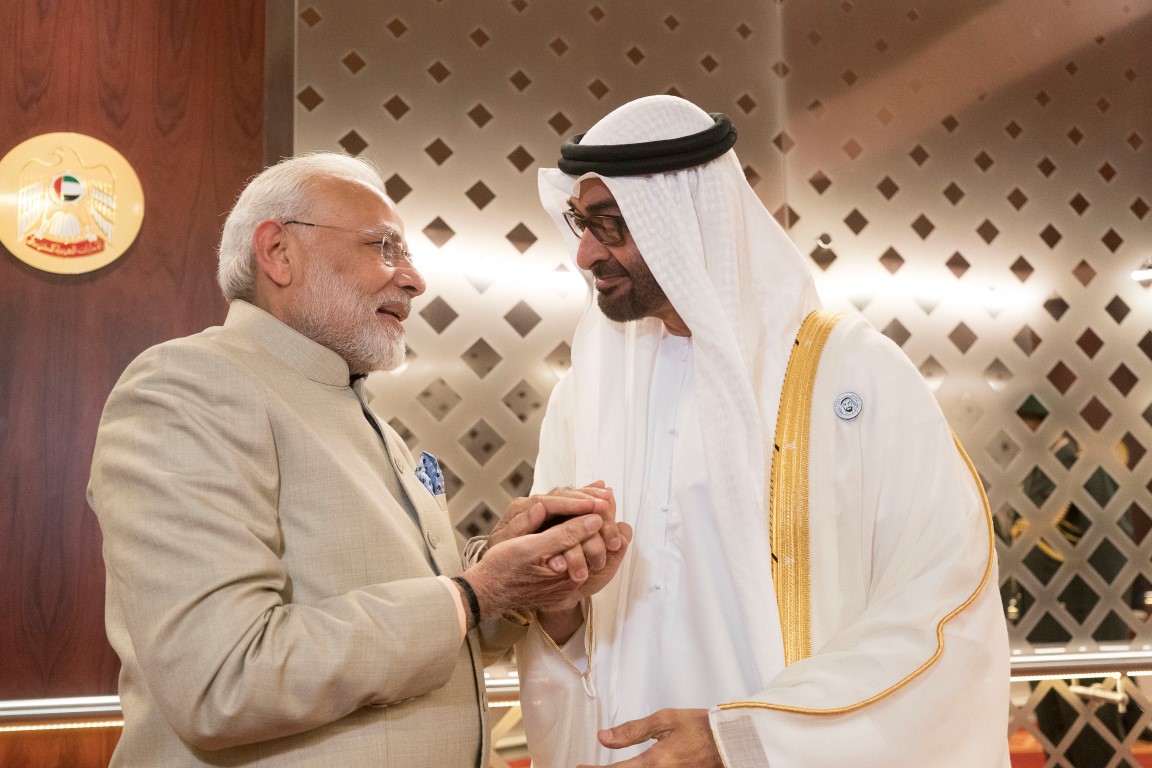


In a strategic move to reduce dependence on the US dollar in international trade, the Reserve Bank of India (RBI) is pushing for local banks to facilitate direct trade settlements between the UAE and India using the dirham and rupee currencies. This decision aligns with the two nations' goal to expand bilateral trade to $100 billion and also promotes the use of the Indian rupee in global transactions. The move has the potential to increase trade volumes in local currencies and could pave the way for similar arrangements with other key trading partners.
India's Push for Trade Settlement in Local Currencies
In a bid to reduce its dependence on the US dollar and boost bilateral trade, India is encouraging direct trade settlements in local currencies with key partners. This strategic move has significant implications for the Indian economy and global trade.
Background
India has traditionally relied on the US dollar for international transactions. However, the dominance of the dollar has raised concerns about currency fluctuations and potential vulnerabilities in the Indian economy. Moreover, geopolitical tensions between the US and China have further highlighted the need for diversification in international payment mechanisms.
The India-UAE Agreement
In line with these concerns, the Reserve Bank of India (RBI) has signed an agreement with the United Arab Emirates (UAE) to facilitate direct trade settlements in the dirham and rupee currencies. This agreement aims to expand bilateral trade between the two countries to $100 billion and promote the use of the Indian rupee in international trade.
Benefits of Local Currency Trade Settlement
The adoption of local currency trade settlement offers several benefits:
FAQs
Q1: Why is India pushing for local currency trade settlement?
A: To reduce its dependence on the US dollar, promote bilateral trade, and enhance the role of the Indian rupee in global trade.
Q2: What is the significance of the India-UAE agreement?
A: It marks the first formal agreement between India and a major trading partner to facilitate direct trade settlements in local currencies.
Q3: How will local currency trade settlement impact Indian businesses?
A: It will reduce transaction costs, provide exchange rate stability, and potentially increase trade volumes.
Q4: What are the potential challenges of local currency trade settlement?
A: The initial setup and implementation costs, as well as the need for adequate liquidity in both currencies, can pose challenges.
Q5: What are the implications for the global economy?
A: India's push for local currency trade settlement could set a precedent for other countries to explore similar arrangements, potentially reducing the dominance of the US dollar and promoting regional economic cooperation.

Jammu and Kashmir police have filed an FIR against a group of Christian missionaries in Kathua district for allegedly attempting religious conversions through financial incentives. This comes after a video surfaced online showing the missionaries being attacked and their vehicle vandalized by villagers. The incident has sparked outrage and protests from local Hindu groups, demanding action against the accused missionaries. One accused, Ravindra Singh Thela, has been arrested while the main accused, Vivek Soni, is still at large. The police have also suspended eight personnel for failing to stop the attack.

US Vice President JD Vance, who converted to Catholicism in 2019, has revealed that he hopes his Hindu-raised wife, Usha Vance, will eventually embrace Christianity. However, he clarifies that their interfaith marriage is built on mutual respect and understanding, and that Usha has complete freedom of choice in matters of faith. The couple has found a balanced way to manage their interfaith household, with their children attending a Christian school and given the choice to be baptized.

US President Donald Trump has expressed optimism about reaching a trade deal with China "pretty soon" after a meeting with Chinese President Xi Jinping in South Korea. In addition to announcing lower tariffs on Chinese imports, Trump also stated that the issue over US access to rare earths has been resolved. However, there has been no official response from Beijing and the final decision on the sale of Chinese-owned TikTok's US operations is still pending. Analysts see these developments as a breakthrough in the ongoing trade tensions between the two countries. Our correspondents provide insight on the discussions between the two leaders and speculate on why Xi may have felt confident walking into the meeting.

At the Asia-Pacific Economic Cooperation (APEC) Summit in South Korea, Chinese President Xi Jinping and US President Donald Trump met for their first in-person talks in several years. Despite past frictions, Xi called for closer cooperation between the two largest economies in the world, emphasizing the importance of being "partners and friends." Acknowledging Trump's peace efforts in the Middle East, Xi commended his contributions and praised him as a "tough negotiator." Trump also expressed optimism for a productive discussion on trade and global security.

In a historic event, Prime Minister Shri Narendra Modi addressed the Global Maritime Leaders Conclave and chaired the Global Maritime CEO Forum at India Maritime Week 2025 in Mumbai, welcoming participants from over 85 countries. With major shipping giants, startups, policymakers, and innovators in attendance, the summit showcased India's advancements in the maritime sector, such as the replacement of outdated colonial laws with modern ones and the recognition of large ships as infrastructure assets. Amidst global tensions, India stands as a symbol of strategic autonomy and inclusive growth, ready to take on a leading role in the world's rough seas.

Indian Prime Minister Narendra Modi has declared that the next generation of Goods and Services Tax (GST) reforms will begin on the first day of the Navratri festival. This major economic overhaul aims to streamline the current GST system and support businesses, especially small and medium enterprises. In other news, the National Human Rights Commission (NHRC) and Ministry of External Affairs (MEA) are collaborating to organize a six-day program in New Delhi to strengthen executive capacity for International Technical and Economic Cooperation (ITEC). Lastly, the upcoming BIRC 2025 conference will take place at the Bharat Mandapam in New Delhi.

Indian Prime Minister Narendra Modi is set to address the Global Maritime CEO Forum and Maritime Leaders Conclave at India Maritime Week (IMW) 2025 in Mumbai on Wednesday. The event will bring together global maritime leaders, investors, policymakers, and innovators to discuss sustainable growth and inclusive blue economy strategies, showcasing India's efforts towards becoming a leading maritime power. With the theme 'Uniting Oceans, One Maritime Vision' and participation from over 85 countries, the event will highlight India's commitment towards maritime sustainability and climate responsibility.

Cyclone Montha has intensified into a 'severe' cyclonic storm and is expected to make landfall in Andhra Pradesh this evening. The storm, which may cross the coast near the Kakinada area, is likely to bring heavy rainfall and strong winds to several districts in Andhra Pradesh. Meanwhile, the Odisha government has evacuated people from vulnerable areas and issued warnings for heavy rainfall in several districts. Commuters in the Waltair region have also been affected as train services have been cancelled, diverted, or terminated.

The India Meteorological Department has warned of an impending severe cyclonic storm, named 'Montha', that is expected to make landfall near Kakinada on the Andhra Pradesh coast. The storm has already caused heavy rain and strong winds along India's east coast and will continue to do so until Tuesday. States like Tamil Nadu, Odisha, Andhra Pradesh, and more have been placed on high alert and the government has declared holidays for schools in several districts as a precautionary measure. The Union Minister and BJP Chief has also directed party units to assist in rescue and relief operations.

While conducting routine operations on Sunday, two separate crashes involving US Navy aircraft occurred over the South China Sea, coinciding with President Trump's visit to Asia. The first involved a MH-60R Sea Hawk helicopter from the USS Nimitz, and the second involved a Boeing F/A-18F Super Hornet fighter jet. Luckily, all personnel involved were rescued without any injuries reported.